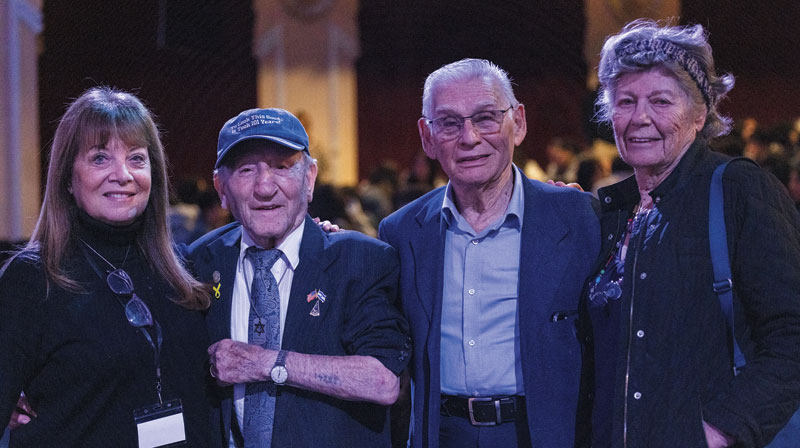
(The Media Line) While still grappling with the weekend’s unprecedented disaster at Mount Meron, which claimed the lives of 45 people, Israel on Monday was forced to turn its attention to another pressing matter – the fast-approaching end of Prime Minister Binyamin Netanyahu’s mandate to form a government.
The reigning prime minister has 24 hours to present his new administration.
At noon, shortly after his latest attempt to fuse his extreme right-wing allies in parliament with the Islamist United Arab List again came up short, a visibly shaken Netanyahu directly addressed his longtime-partner-turned-rival Naftali Bennett, imploring the unexpected kingmaker to join his coalition.
For the good of our country, I’ve decided to acquiesce his request. Naftali, now it’s your turn.
“We can’t let personal grudges get in the way of a right-wing government. That is the will of the people,” Netanyahu said in a special televised address.
“Bennett is playing both sides, negotiating with the Left while speaking with me, making a rather unusual demand that he be prime minister first in a rotation with me.”
Netanyahu’s ongoing trial on charges of bribery, fraud and breach of trust recommenced Monday morning.
“For the good of our country, I’ve decided to acquiesce his request,” he concluded his remarks, officially agreeing for the first time to step down, temporarily, as prime minister. “Naftali, now it’s your turn.”
Yet Bennett, who at one time served as Netanyahu’s chief of staff and close ally before heading out on his own, forming a new party and promising to replace the long-serving incumbent, was having none of it.
“This isn’t about my demands, or about jobs or honor,” he insisted minutes after the prime minister’s speech.
“I’ve told Netanyahu since day one [following the election] that he has our support, if he can muster a right-wing coalition. But he can’t and now he’s trying to shift the blame on us.”
After netting the most seats in the March 23 elections and subsequently receiving the nomination from President Reuven Rivlin to form a government, the prime minister has spent the past month trying to no avail to establish a 61-seat coalition.
We are resilient in our position not to take part in a government that depends on people who deny our existence as a Jewish state.
His relentless pressure on the extremely conservative Religious Zionism party to join a government that includes the United Arab List, despite vowing prior to Election Day not to cooperate with the Islamic party, proved fruitless, with Religious Zionism chair Betzalel Smotrich on Monday reiterating his refusal to join hands with “terror sympathizers.”
“We shall never fold our flag or sell out our values,” Smotrich said after a deciding and tense meeting with the party’s spiritual leader, Rabbi Haim Drukman.
“We are resilient in our position not to take part in a government that depends on people who deny our existence as a Jewish state.”
With Smotrich standing fast in his adamant rejection, Netanyahu’s seemingly enticing overtures to Bennett remain no more than empty promises. Even with Bennett’s support, the prime minister still does not have the required yea votes to swear in a government.
A source close to the stubborn Religious Zionism leader told The Media Line Smotrich would not budge in the remaining 24 hours of Netanyahu’s mandate.
“We have the full support of our voters. 100%. This isn’t difficult for us, politically,” the person said.
It is either a decent, functioning unity government or another election. Now is the time for choosing between unity and the continued rule of division and hate.
“It is either a decent, functioning unity government or another election. Now is the time for choosing between unity and the continued rule of division and hate,” Opposition Leader Yair Lapid said Monday.
The center-left lawmaker, who garnered 17 seats in the March contest, has in recent weeks conducted ongoing talks with Bennett, offering the latter, who managed only seven seats, the first two years as prime minister in their theoretical joint government.
“We have a country to run,” Lapid said in a statement sent to The Media Line. “I’ve gone above and beyond, made a lot of concessions to Bennett, so that we can get to work on curing this nation.”
Failing to present his government, Netanyahu’s time will expire Tuesday at midnight.
President Rivlin will then determine whether to award another candidate, presumably Lapid, one month to establish a coalition, or pass the political hot potato to parliament, itself.
If no government is sworn in after that, Israel will head to its fifth round at the polls in just over two years.
“Netanyahu knows it’s over, in terms of his chance to secure a government,” a source within the center-left bloc told The Media Line. “His entire focus now is preventing an alternative coalition from forming on the other side. He’ll do anything to drive a wedge and sabotage these efforts.”
With precisely one day left on Netanyahu’s clock, Bennett must finally determine which way to turn.
“I’ve said it before and I’ll repeat myself: We will do anything in our power to stop this country from heading to another destructive election,” Bennett said Monday.
“Yes, even if that means exploring the possibility of a unity government.”
With one side offering him the coveted prime minister’s office in return for joining forces with left-wing lawmakers and perhaps losing support among his base, and the other promising him the continued backing of right-wing voters and an all but assured fifth election cycle, the decision is up to him.
By Tuesday night, Israel will find out.























 More news and opinions than at a Shabbat dinner, right in your inbox.
More news and opinions than at a Shabbat dinner, right in your inbox.